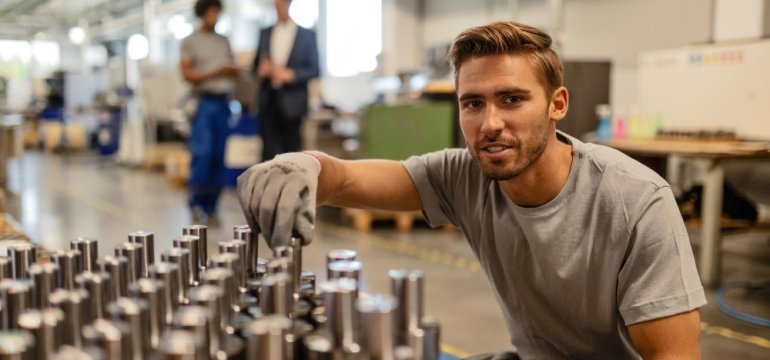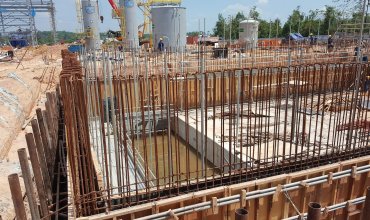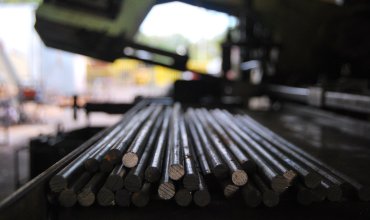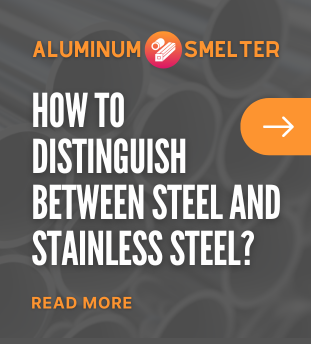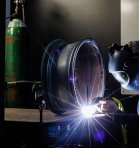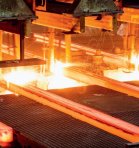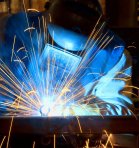As one of the most important materials used in industry, steel has unique mechanical and chemical properties that make it indispensable in many fields. Steel in the form of finished castings is a special form used in the production process, which finds application in various sectors of the economy. Poland, as an industrial potentate in Central Europe, has much to offer both in terms of production and innovation in the use of these materials. This article will take a detailed look at the applications of steel in the form of finished castings, look at its role in Polish industry and assess its future in the context of global trends.
Steel in the form of finished castings in the automotive industry
The automotive industry is one of the main customers for steel in the form of finished castings. Steel has been used for years in the production of cars, trucks, motorcycles and many other vehicles. These components are used for engines, transmissions, exhaust systems and various body parts.
The Polish economy boasts a strongly developed automotive sector, which, being part of global supply chains, produces a significant amount of steel components. Low production costs and high quality make Polish foundries highly regarded in the international market. The environmental aspect is also relevant here, as steel in the form of finished castings can be fully recycled, which is part of the global drive for sustainable development.
It is worth adding that casting steel used in the automotive industry must meet very stringent requirements, both in terms of durability and resistance to corrosion and other mechanical damage. In this context, advanced processing technologies and quality control are necessary, which is a challenge, but at the same time provides opportunities for Polish companies operating in this industry.
The role of steel in the form of finished castings in the construction industry
Construction is another area where steel in the form of finished castings plays an irreplaceable role. It is used both in the construction of infrastructure and in building structures. Steel castings are commonly used to manufacture load-bearing elements such as beams, columns, as well as in the construction of bridges and other public infrastructures.
Poland, as a country undergoing a building boom, is an excellent example of the use of cast steel in modern architectural projects. The high strength of steel and its resistance to a variety of weather conditions make it a prime material in construction. Requirements for safety and structural stability are met precisely because of its mechanical properties.
Polish construction companies also benefit from innovative technologies for manufacturing prefabricated steel elements, which significantly speeds up the construction process and reduces its costs. In the context of environmental care, the use of steel offers the possibility of recycling, which minimizes the negative impact on the environment.
Use of cast steel in the energy industry
The energy industry is usually equated with high demands and complexity of technology, which must be trouble-free and durable. In this context, steel in the form of finished castings is widely used. Steel castings are indispensable in the production of power plants, wind turbines, as well as in gas installations or heating systems.
The energy sector in Poland is developing intensively, especially in the context of renewable energy sources. The production of wind turbines using cast steel is one of the key areas, enabling stable and efficient energy production. In turn, steel components used in gas installations and heating systems, such as valves, pipes or pump bodies, undergo specialized tests for strength and tightness.
The innovation of Polish engineers and the high quality of production are making Poland an increasingly competitive player in the global market. Plants located in the country are capable of producing both mass and specialized custom components.
Cast steel in the engineering industry
Steel in the form of finished castings is a basic component in the engineering industry. It is used to produce a variety of machine components, such as engine bodies, gears, bearings, as well as agricultural and mining parts. Its high resistance to dynamic loads and wear makes cast steel irreplaceable in this industry.
Production processes in the Polish machinery industry are technologically advanced, allowing the manufacture of components with diverse properties and high precision. The optimization of casting methods and continuous investment in modern technologies make it possible for Polish companies to compete with the world's largest manufacturers.
With regard to ecology, cast steel in the engineering industry also plays an important role, primarily through its recyclability. Proper management of production processes and attention to minimizing waste are key aspects of modern machine shops.
Innovative applications of steel in the form of finished castings in Poland
Poland is a country that is rapidly innovating in various industrial sectors, and steel in the form of finished castings plays a key role in this process. Foundries in Poland are increasingly attracting investors with their modern technologies and high-quality products.
One such modern application is the use of steel castings in the production of advanced parts for aircraft and drones. Cast steel makes it possible to produce components with high strength and low weight, which is crucial in the aerospace industry. Another innovative application is components for the production of modern wind turbines, which represent the future of renewable energy.
It is also worth mentioning the growing importance of research and development of new steel alloys, which can find applications in more demanding environments, such as space or the depths of the seas. The Polish metallurgical industry is also successfully operating in the field of nanotechnology, which opens up new possibilities for using cast steel in future technological innovations.
Summary
Steel in the form of finished castings is a material that, thanks to its unique properties and wide application, plays a key role in many sectors of the Polish economy. From the automotive industry to the construction, energy, machinery and aerospace industries, cast steel is everywhere where strength, durability and reliability are needed.
Poland, with its developed metallurgical sector, is able to supply high-quality products that meet the requirements of global markets. With continuous investment in new technologies and attention to the environment, Polish foundries have prospects for further development and strengthening their position on the international stage.
There is no doubt that innovative approaches and the pursuit of excellence in the production and applications of steel in the form of finished castings will be key factors driving the development of the Polish economy in the future. In this way, we can count on sustainable development that will benefit both the industry and society as a whole.


